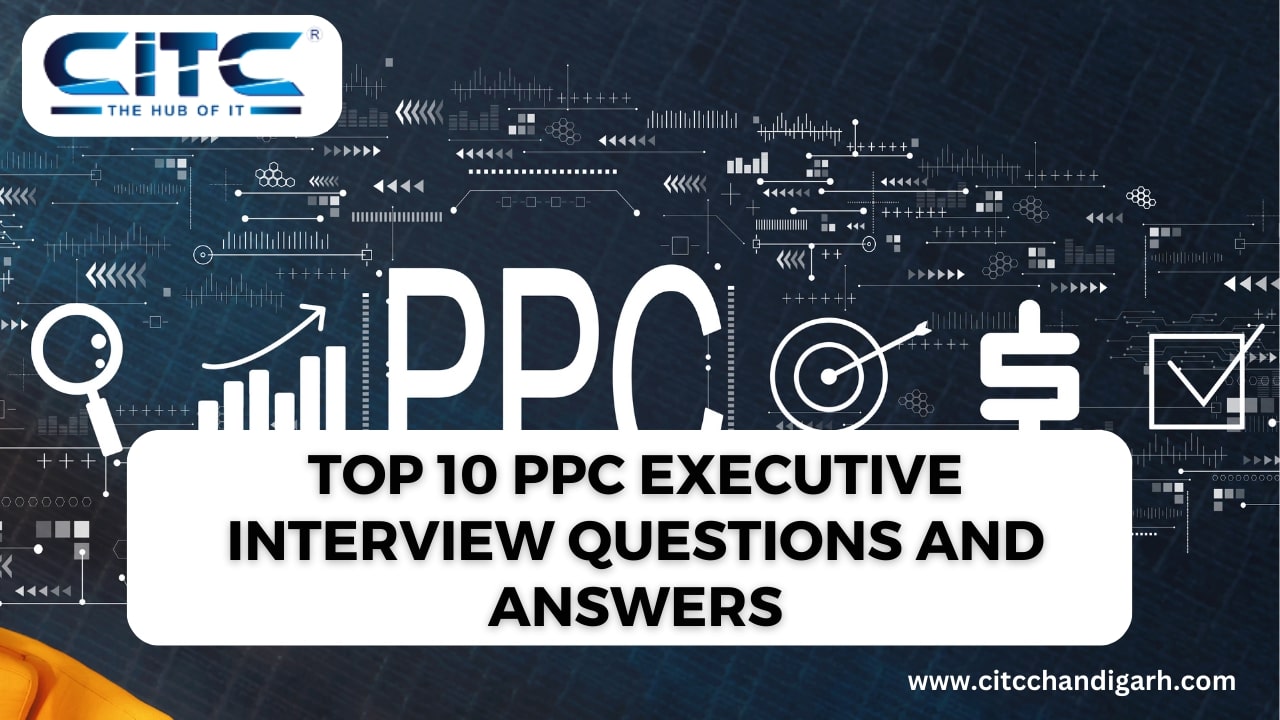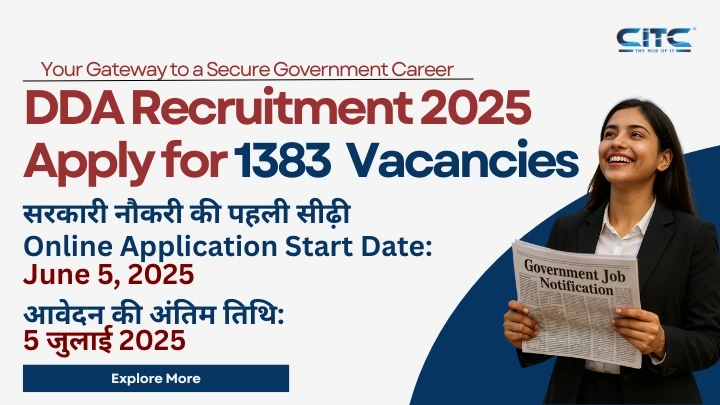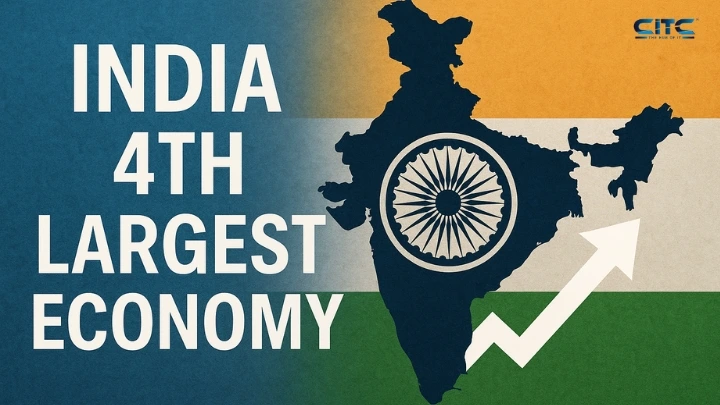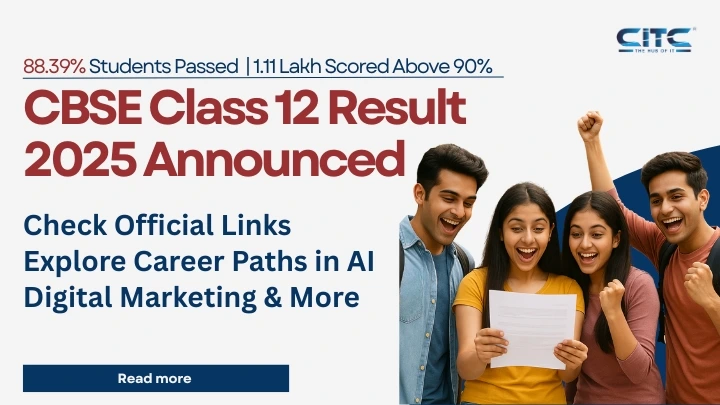Jul 25, 2023 Total Views: 825
Top 10 PPC Executive Interview Questions and Answers
Welcome to CITC - The Hub of IT's Digital Marketing
Institute! As a prominent institute in the field of digital marketing,
we understand the importance of preparing our students for successful job
interviews. In this article, we will explore the top 10 PPC executive
interview questions frequently asked by employers and provide you with
comprehensive answers to help you excel in your next interview. Let's get
started!
Question 1: How do you define the role of a PPC
Executive, and what are the key responsibilities associated with this position?
Answer: As a PPC Executive, Primary role is to manage
pay-per-click advertising campaigns on various platforms like Google Ads, Bing
Ads, or social media platforms. Key responsibilities include conducting keyword
research, creating targeted ad copies, optimizing landing pages, monitoring
campaign performance, and maximizing ROI for the company's advertising budget.
Question 2: Can you share an example of a successful PPC
campaign you managed in the past, and what were the results achieved?
Answer: Certainly! In my previous role, I executed a PPC
campaign for an e-commerce company targeting a specific product launch. By
conducting thorough keyword research, A/B testing ad copies, and optimizing
landing pages, we achieved a 30% increase in click-through rate (CTR) and a 20%
decrease in cost per acquisition (CPA) within the first month of the campaign.
Question 3: How do you stay updated with the latest PPC
trends and changes in advertising platforms?
Answer: Staying up-to-date with PPC trends is crucial for
staying competitive. I regularly follow industry-leading blogs, attend PPC
webinars, and participate in conferences. Additionally, I subscribe to official
platform updates and engage in PPC communities to exchange insights and best
practices.
Question 4: How do you determine the right PPC budget for
a campaign, and how do you allocate it across different platforms?
Answer: Determining the PPC budget involves considering the
campaign objectives, target audience, and industry competition. I conduct
thorough keyword research to estimate costs and potential traffic. Based on
performance data from previous campaigns, I allocate the budget across
platforms to focus on the most promising channels for optimal results.
Question 5: What metrics do you track to measure the
success of a PPC campaign, and how do you interpret the data?
Answer: Tracking key performance indicators (KPIs) is
essential for evaluating campaign success. I monitor metrics such as
click-through rate (CTR), conversion rate, return on ad spend (ROAS), and cost
per conversion (CPC). I interpret the data to identify areas of improvement,
allocate budgets effectively, and optimize ad copies and landing pages for
better performance.
Question 6: How do you conduct keyword research for PPC
campaigns, and how do you identify high-performing keywords?
Answer: Keyword research involves identifying relevant and
high-performing keywords that align with the campaign's objectives. I use tools
like Google Keyword Planner, SEMrush, or Bing Keyword Research to find keywords
with high search volume and low competition. Additionally, analyzing
competitors' keywords and running small-scale tests helps identify
high-performing keywords.
Question 7: Can you explain the importance of ad
relevance and quality score in PPC campaigns?
Answer: Ad relevance and quality score are critical factors
in PPC success. Ad relevance ensures that ads are closely related to the
keywords and landing pages they target, leading to higher CTR and improved ad
performance. Quality score is a metric that search engines use to rate the
quality and relevance of keywords and ads. A higher quality score results in
lower CPC and better ad positions.
Question 8: How do you optimize landing pages for better
conversion rates in PPC campaigns?
Answer: Optimizing landing pages is crucial for increasing
conversion rates. I ensure that the landing page is relevant to the ad and
contains a clear call-to-action (CTA). I use A/B testing to experiment with
different layouts, headlines, and CTAs to identify the most effective combination.
Additionally, I focus on page load speed and mobile responsiveness for a
seamless user experience.
Question 9: Can you share your experience in managing
remarketing campaigns, and how do they benefit businesses?
Answer: Remarketing campaigns target users who have
previously interacted with a website but didn't convert. These campaigns are
beneficial as they keep the brand in front of potential customers, reminding
them of the product or service. Remarketing campaigns often have higher
conversion rates and ROI, as they target warm leads already familiar with the
brand.
Question 10: How do you ensure PPC campaigns comply with
the allocated budget and achieve the desired ROI?
Answer: To ensure PPC campaigns stay within the allocated
budget, I closely monitor spending on a daily or weekly basis. I use bid
adjustments and set campaign-level or ad group-level budgets to control costs
effectively. Regular analysis of performance metrics allows me to optimize bids
and keywords to maximize ROI and achieve the desired campaign goals.
Conclusion:
Congratulations! You've now familiarized yourself with the top
10 PPC executive interview questions and equipped yourself with
comprehensive answers to excel in your next interview. At CITC - The Hub of IT's Digital Marketing Institute,
we are confident that with our training and these interview tips, you'll be
well-prepared to succeed as a PPC executive and contribute to the
success of future PPC campaigns. Best of luck!






